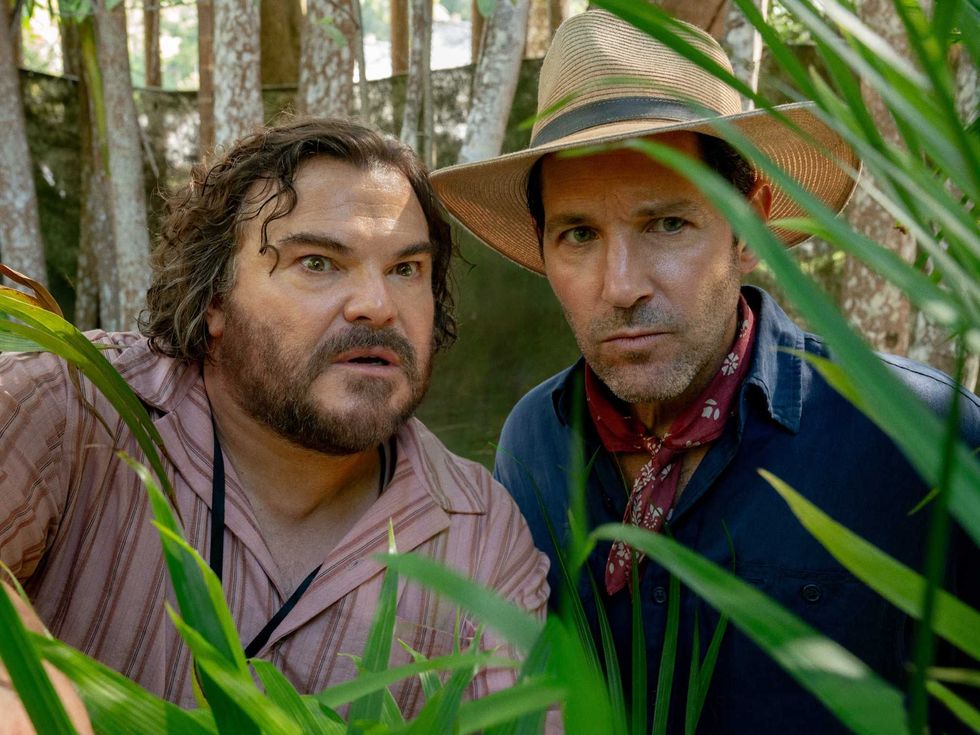A song for Houston
Stargazing through music: Musiqa's Deep-Sky Objects soars beyond the heavens
Can something exist without being perceived?
Christian writer and novelist Pamela Jackson posed this question, an allusion to 18th-century philosopher George Berkeley, whose subjective idealism dogma argued against the mere physical existence of things. Without a perceiver, material structures cease to exist. The lineage of thinking stems from the writings of Aristotle, who inadvertently birthed the genre of metaphysics (meta is Greek for beyond or after) when Latin scholars misinterpreted an anthology of the Greek philosopher's books collected after his musings on physics with the actual study of what's outside the realm of physics.
So what does any of this have to do with music?
"And maybe more than any place in the United States, the people in this town have looked up at the stars and wondered about that distances and about what and who could be out there."
Much actually, particularly as it pertains to Musiqa Houston's first concert of the 2012-13 season, set for 7:30 p.m Saturday at the Hobby Center for the Performing Arts. More precisely, a commission by this forward thinking conglomerate of tunesmiths from American composer Sebastian Currier and librettist Sarah Manguso has much to do with perception, time and space.
Deep-Sky Objects, written for soprano, string quartet, piano and pre-recorded computer sounds, looks to the heavens, coalesces time and space — both thematically and by melding aesthetic practices of different artistic epochs — and journeys outside of the material world onto an intergalactic love affair.
If you are tempted to receive such a motif, that of a celestial romp, with a smirk and and a mischievous eye-roll of disbelief, Currier would agree with you — and sanction your reaction. Somehow a woman serenading her lover in this scenario, whoever or whatever he, she or it may be, is plausible in Star Trek, Stargate, Battlestar Galactica, Star Wars — perchance any sci-fi show that has "star" as part of its title.
But on the concert stage? Now that's just silly — or so one would think.
Though Deep-Sky Objects is peppered with whimsical "sounds from space" — the composer writes in the program notes about bleeps converted from pulsars, which are derived from electromagnetic radiation produced by a rotating neutron star, signals from satellites, audio of the Huygens probe as it lands on one of Saturn's moons and imagined noise that evokes the unfathomable enormity of the cosmos — within the deeply emotional text are universal themes that readily connect to the human condition. And to the city of Houston.
"How close can we get to someone and what does it mean when we are far away?"
"Houston is space city," Anthony K. Brandt, Musiqa co-founder and artistic director, explains. "I heard on the radio that Voyager 1 is about to become the first object to leave the solar system. The people responsible for sending it across that vast system are from here. And maybe more than any place in the United States, the people in this town have looked up at the stars and wondered about that distances and about what and who could be out there.
That Deep-Sky Objects is being launched in Houston, is poetic, he says, as the space program is part of the city's identity.
"It's about looking into space and thinking, as far away as things are, is there something I can connect to? Or is there something that touches me that I can't reach?"
Manguso's text, which was written specifically for Deep-Sky Objects, leaves much up to the listener's imagination, including the type of love affair in question: Physical love? Or something more mystical, supernatural, maybe religious in nature?
"I think Deep-Sky Objects is also a metaphor for the space that always separates two people," Brandt continues. "Whether they are in the same town or on opposite ends of the galaxy, it's something we all feel in our family lives and our relationships. How close can we get to someone and what does it mean when we are far away?"
Deep-Sky Objects is a suite comprising 10 short movements which modulate in style, between challenging, driving rhythms to sparse, ethereal textural scoring. Extremes rule here.
Like the tree that falls in the forest that makes a sound but no one is around to hear it, if a new work lives on paper and isn't played nor heard, does it exist?
Though untamed energy mixed with the predictability of the pre-recorded sounds may appear as antithetical, such opposing forces lean further into philosophies of perception. Moreover, strong emotions ground Deep-Sky Objects in a prolific period of music history that strives for free expression of feelings, and time travels to address concerns of modernity.
"Most of the 19th century song cycles of Schubert and Schumann, which I grew up on, they are always about longing and lost love," Currier explains about how his work is rooted in Romanticism. "My thought was to take that and expand that absurdly into the 21st century with huge distances. But behind that there's a serious undertone as well."
For Musiqa, commissions are the bread and butter of the organizations' activities. Preparing to perform a premiere is something that takes hundreds of hours of study.
The culmination of the artistic process is the performance. Because a composition doesn't come into its own until it's heard for the first time, outside of the creative personalities that put it together.
Like the tree that falls in the forest that makes a sound but no one is around to hear it, if a new work lives on paper and isn't played nor heard, does it exist?
___
Musiqa's season opener concert, "Deep Sky Objects - Where music, poetry and dance meet," set for 7:30 p.m. Saturday at the Hobby Center for the Performing Arts, also includes works by Pierre Jalbert, Lera Auerbach and a dance premiere by choreographer Tina Bohnstedt with Houston Ballet II. Tickets start at $20 and can be purchased online or by calling 713-315-2400.












